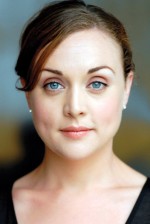Column Name
Title
Singer Katherine Howell has worked at Juilliard for four years in three different roles. While they’ve all been rewarding, her work at the Marks Center has provided her with “an amazing education in how to program and produce artistic projects” and the constant networking she does for work has also led to freelance gigs. As the assistant director of the center, she manages many of its performances that take place outside the school, helps with educational programming, and is a member of the Entrepreneurship Grant Committee. She also meets with students and alumni to discuss everything from website creation and résumés to entire career shifts. Katherine grew up in Berkeley, where she got her bachelor’s in music from the University of California. She also has a master’s in vocal performance from the San Francisco Conservatory of Music and is working on her doctorate in college music teaching at Teachers College, Columbia University.
Body
What job at Juilliard would you like to try out for a day?
Provost and dean, so I could get to know and work with every faculty member, artistic director, and extraordinary student in this building. Plus I’d love a crack at a position that oversees curriculum and the enrichment and development of our young artists.
What’s the most memorable job you’ve had?
Singing in the chorus of Wozzeck with the Philharmonia Orchestra of London and Esa-Pekka Salonen conducting. The women of the chorus only sing for about six measures. The rest of the opera, I got to sit in the best seats in the house watching an incredible conductor and musicians.
What’s the craziest day at work you’ve had?
My first big event through Career Services was a corporate party that rented the entire Metropolitan Museum. There was a string octet playing in the Temple of Dendur, and we had to have a third quartet rotate in every 20 minutes because the client wanted continuous music. To make that happen, I walked through the empty museum with a guard and marveled at the access an institution like Juilliard grants you.
What piece of career advice have you given out that you wish you’d known as a student?
The best piece of advice that I’ve both given out and heard has to do with getting to know ourselves and what our personal and artistic visions are. This may seem intuitive, but it really merits taking time for personal reflection and even writing out. I had a lot of preconceived notions about what success in the arts meant and what it should look like for me, but I’ve come to find my entire disposition is suited to a certain kind of career far different from the opera performance career I thought I wanted.
How do you balance your job and your artistic endeavors?
I’m a big proponent of self-care—time for exercise, meditation, sleep—but I’m not convinced that the artistic life is necessarily one of balance. It takes a tremendous amount of energy and dedication, which is why not everyone stays in artistic fields. I’m now at a stage of my career where I want to focus on doing a few things very well rather than taking on a lot of projects to feel artistically productive. Early on, I took any singing offer, tutored, and worked full-time to have a foot in what I loved to do as well as make rent. Now I have a totally fulfilling role as an educator and have stepped back from auditioning for operas to focus on professional choral and concert work, which is where I feel most artistically at home. There’s a lot of freedom in being able to say “no” to some offers while knowing the right opportunities will come.
What else are you passionate about?
Between my job, singing projects, and school, there’s not a lot of time for much else, but I tend to recharge by getting outdoors. My parents are both biologists, so I grew up learning to be very observant when I’m outside and to identify all kinds of wildlife, especially birds. I’ve even seen hawks do their mating dance in Central Park. They fly super high, grab each other’s talons and start spiraling straight down toward the ground. It’s amazing what you can witness when you get outside and really look around.
What are you reading?
A textbook, Research Methods in Education by William Wiersma and Stephen G. Jurs, plus lots of articles on music education. I am a tremendous nerd, and applying near-scientific research techniques to the world of music education fascinates me.
Where would you most like to travel?
The moon. There’s something really compelling about being able to look back and see our little home from that distance. I have the naïve notion that if we could all see it that way, it would change our perspective of how we treat each other and the earth itself.





